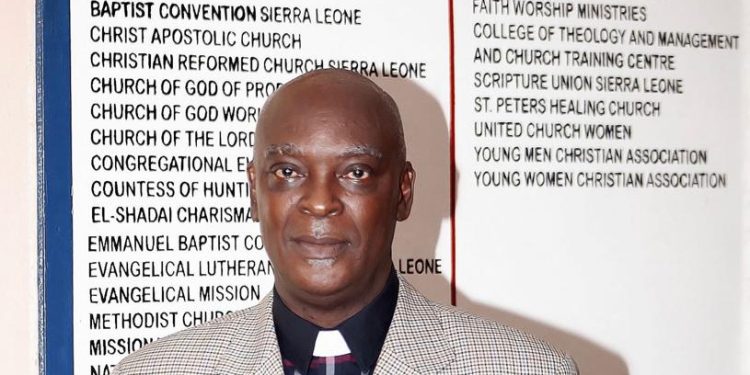By Mackie M. Jalloh
The Council of Churches in Sierra Leone (CCSL) has expressed its approval of the recent decision by the Speaker and Members of Parliament to suspend debates on the contentious Safe Motherhood and Reproductive Health Care Bill, 2024. This decision comes amidst heightened public interest and divergent views on the bill, which seeks to address key issues in maternal and reproductive health. The CCSL has called for a more inclusive, detailed, and comprehensive deliberation process, emphasizing the need to consider the perspectives of all stakeholders.
The CCSL’s statement, signed by its President, Rev. Henry A. Samuels, underscores the significance of careful deliberation and public education to ensure that the concerns and priorities of Sierra Leone’s religious, cultural, and social institutions are adequately addressed. The Council has commended the Speaker of Parliament, the Right Honorable Solomon Sengepoh Thomas, for what it described as a prudent and thoughtful approach to handling the complexities surrounding the bill.
At its core, the Safe Motherhood and Reproductive Health Care Bill seeks to tackle issues relating to maternal health, access to healthcare services, family planning, and reproductive rights. Sierra Leone’s maternal mortality rate remains one of the highest globally, with women often lacking access to adequate healthcare services during pregnancy and childbirth. The bill aims to improve access to life-saving healthcare for women, reduce preventable maternal deaths, and ensure women have autonomy over reproductive health decisions.
However, certain provisions in the bill have raised moral and ethical concerns, particularly among religious communities. One area of contention is the bill’s approach to reproductive rights, which some interpret as permitting actions that contradict traditional and religious values.
The CCSL has made it clear that any discussion on reproductive healthcare in Sierra Leone must align with the nation’s religious values. The statement emphasizes that the sanctity of life remains a cornerstone of Christian doctrine, calling for the utmost care in navigating the bill’s provisions. The CCSL has highlighted the importance of consulting with religious leaders to ensure that the law upholds these moral values while addressing pressing healthcare needs.
In its statement, the CCSL reaffirmed its commitment to working closely with the Inter-Religious Council of Sierra Leone (IRCSL) to promote constructive dialogue. The Council believes that fostering an environment of collaboration among various religious groups, government bodies, and civil society organizations is essential for reaching a consensus on this sensitive matter.
Rev. Henry A. Samuels urged all parties to remain calm and respectful throughout the discussions, highlighting the need for wisdom, unity, and a shared commitment to the well-being of Sierra Leone’s people. The CCSL also stressed the importance of broad public education on the bill to ensure that citizens are well-informed and can actively participate in the legislative process.
The Safe Motherhood and Reproductive Health Care Bill is not merely a legislative matter; it is emblematic of the broader challenges Sierra Leone faces in balancing modern healthcare advancements with deeply rooted cultural and religious traditions. Advocates of the bill argue that it is a necessary step toward reducing maternal mortality and promoting gender equality in healthcare access.
Critics, however, caution against rushing into legislation without considering its long-term societal impact. They argue that aspects of the bill may conflict with the moral fabric of Sierra Leone and call for alternative approaches that harmonize health goals with cultural values.
As the debate continues, the CCSL’s intervention highlights the importance of adopting a comprehensive, inclusive approach to policymaking. By advocating for calm, collaboration, and public education, the Council hopes to ensure that the Safe Motherhood and Reproductive Health Care Bill, 2024, reflects the collective values and aspirations of Sierra Leoneans.
The next steps will involve further dialogue, with input from religious leaders, healthcare professionals, and civil society organizations. As Sierra Leone grapples with this critical issue, it is clear that any resolution must carefully balance the needs of the nation’s women with its cultural and moral heritage.










